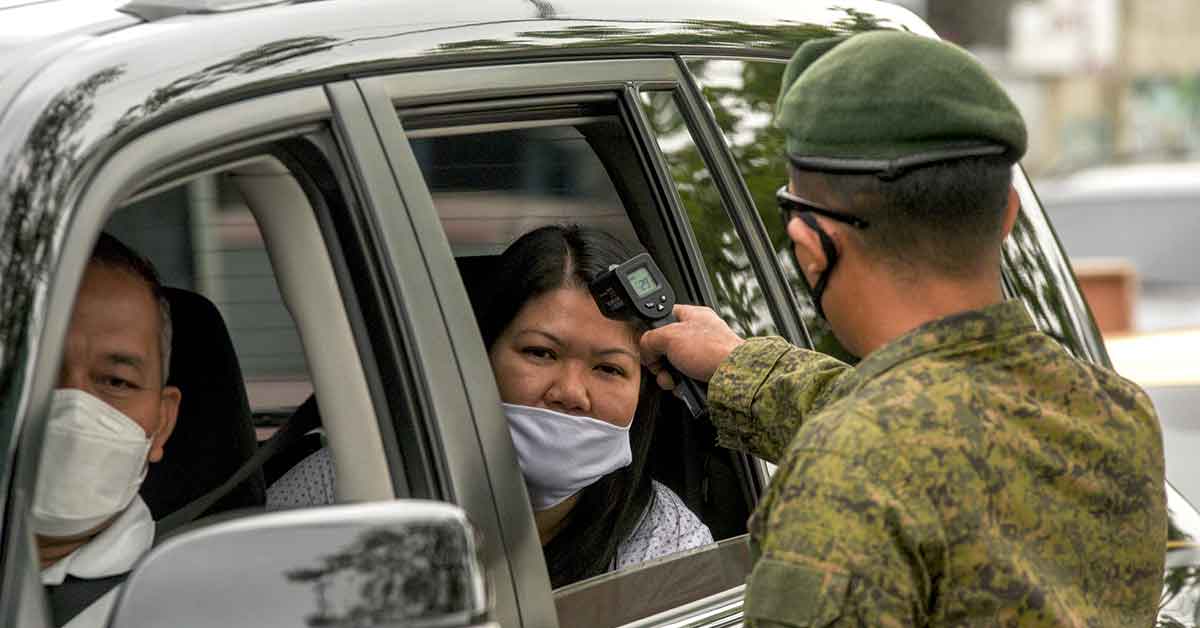Philippine President Rodrigo Duterte ordered about half the country's population to stay home for the next month in a drastic bid Monday to curb the rising number of new coronavirus cases.
If fully enforced, the sweeping order would mean most of the 55 million people on the main island of Luzon, which includes the capital Manila, would be housebound.
Duterte said he backed the restrictions because a quarantine imposed Sunday on Manila's 12 million people was riddled with exceptions that had failed to keep people away from one another.
"You have no choice. You have to stay home," Duterte said of the measures that take effect early Tuesday and will prevent many people from going to work or using public transport.
The president said people would not be arrested for breaching the order, but could be taken into custody for ignoring warnings to go home or tussling with police.
The new restrictions, however, still allow people to leave their homes to buy basic necessities and go to jobs in a range of industries.
Supermarkets, pharmacies, health clinics, banks and other fundamental services were to remain open, as was the nation's massive business service outsourcing industry.
Critics quickly voiced concern at the heavy-handed measures in a nation very wary of authority after its years under the dictatorship of Ferdinand Marcos.
"We need medical and not military solutions," said rights group Karapatan, urging a boost in mass testing, free treatment and distribution of items such as hand sanitiser.
The Philippines has detected a fraction of the infections seen in hot spots such as China and Italy, but its confirmed cases have jumped to 142, with 12 deaths.
Unease has grown as cases turned up in parts of the government, including reports that lawmaker Juan Miguel Zubiri had tested positive.
Malls closed, curfew imposed
Duterte's earlier restrictions halted domestic travel to and from Manila but allowed workers as well as provisions to enter via police and military checkpoints.
On Monday vehicles were stacked bumper-to-bumper in kilometre-long queues at entry points on the capital's perimeter.
Manila's population balloons daily with an army of labourers who commute to work on packed buses from its relatively cheaper suburbs.
Duterte had ordered the capital sealed off from Sunday, and by Monday most of the city's malls - centres of life in the country - had already opted to shut down.
Local leaders were also to begin imposing night-time curfews in some areas to encourage people to stay home, and "large" masses have been called off in the Catholic-majority nation's capital. - AFP
